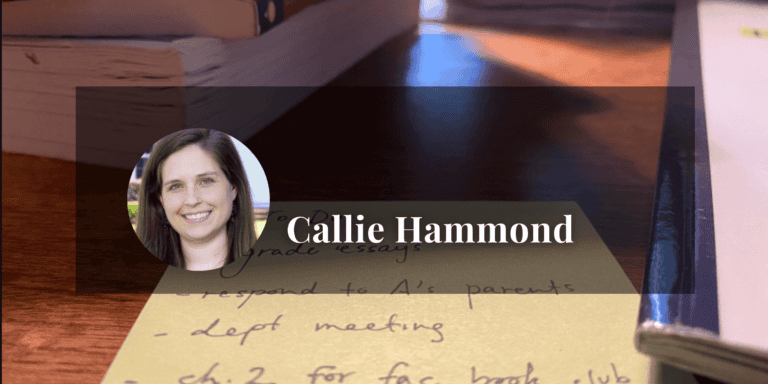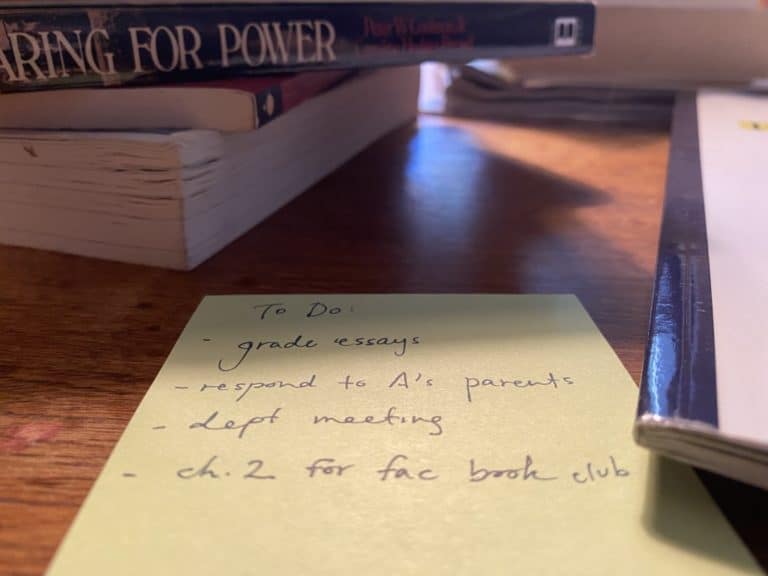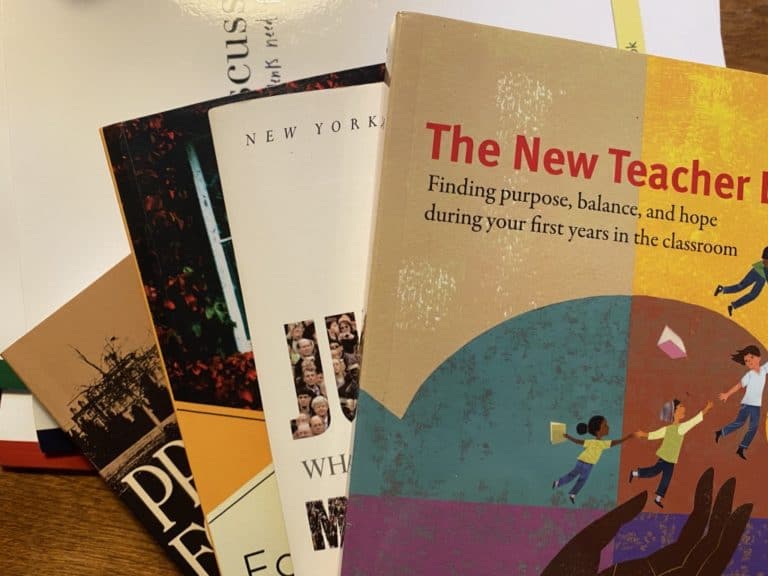REAL Teacher Feature: Brendan Flanagan
Thank you to Brendan Flanagan for sharing his REAL life with us! Brendan is an English teacher at Gill St. Bernard’s School in Chester, NJ. Here are his thoughts on discussion, R.E.A.L.®, and learning.
Hometown: Middletown, NJ
Current City, School, Teaching Assignments:
AP Language & Composition, English 10, and Digital Literacy at Gill St. Bernard’s School in Chester, NJ.
Describe yourself as a student in three words:
Eager to learn.
Who was your favorite teacher and why?

My favorite teacher was my high school APUSH and Western Civilizations teacher, Mrs. Ellen Hill. She taught with a style that was both informative and conversational, both inviting students in while also showing them how much more there is to learn. It’s a style I’ve tried to emulate myself.
When it comes to class discussion, what is your “why”? What feels compelling and important about teaching these skills?
For years, I’ve run a discussion-based class and accepted that discussions were something not every student was going to be “good at.” I often would find amazing ideas from students in their writing, though, which never made it to our conversation space, sometimes for many reasons. Making a space for all ideas from all students is what brought me to R.E.A.L.® in the first place.
Take us back to the first R.E.A.L.® Discussion you led – what were you worried about going into it? What surprised you about it?
I was worried about what worries a lot of teachers: silence. Once my extroverts ran through their turns to talk, I was afraid the class would lapse into awkward silence. And while there were silences, and they sometimes were awkward, they were also almost always short, with a student finding their voice in that vocal gap and bringing in a new or interesting idea they might not have before. The silences worried me, but the ways the students broke them surprised me.
How do you orient your students to R.E.A.L.®? What advice would you give to a teacher on the cusp of their first discussion?
I use the orientation materials provided by R.E.A.L.®, but always live in class so we can discuss them. My biggest piece of advice is to make room for the silly. Students are nervous around new models, and humor is a coping mechanism. So if your students use the NVC as a joke in the hallway or claim something is “an R1, for sure,” let them.
How do you go about planning for a R.E.A.L.® discussion? What have you figured out about the types of texts, DQs, or structures that work well for your students?
Most of my planning goes into the DQs, because those are where students can find the biggest inspiration. I try to frame my DQs in a way that allows the students to pull the topic in multiple directions, with room for multiple interpretations. This lets them keep talking about a topic if one interpretation runs its course.
When it comes to discussion, what are your top 3 learning goals for your students?
- That they learn (or re-learn) how to have a conversation, as I say, “face-to-face, if not eye-to-eye.” Students need to learn how to disagree civilly and respectfully.
- Students learn to prove claims, not opinions. They need to be able to back up their positions with evidence, not just a feeling they have.
- Students learn that good discussions make good writing. While speech and writing are very different, the thought-work behind them often overlap, and students need to recognize that those skills intertwine.
Can you think of a moment you’ve experienced this year or last where a student had a breakthrough during a discussion? What did it look like? How did that feel as a teacher? Did you see it have an impact on the other students?
The moment that most stands out to me is not from during a discussion, but afterward. A student who did not like English – and made that very clear – emailed me the night before their essay was due, following a full discussion cycle, about how the notes they were required to take for the DQ Prep made the essay the easiest they’ve ever written, and the student thanked me for making them do that.
What is your go-to reward for grading a big pile of papers?
I’m always itching to get outside, so I try to reward myself with time in fresh air, even if it’s just a walk around my property.
What discussion challenges have you encountered? How do you approach them?
Singular students who do not participate in discussions have cropped up here and there. My approach is to speak with them, face-to-face (thus modeling my above, “face-to-face, even if not eye-to-eye”), and try to find out why they didn’t. Most of the time, it’s due to a lack of confidence in their answers, so I look through and show them how some other part of the R.E.A.L.® Process – IRT notes, DQ prep, etc.– went extremely well for them, which usually gives them the confidence to put their ideas out there.
What inspires you? Do you have a favorite quote right now?
My students inspire me, but so do my colleagues. Seeing the other English teachers fighting the good fight makes me want to continue it. My favorite quote is actually a mis-ascribed one; most online sources claim W.B. Yeats said, “Education is not the filling of a pail, but the lighting of a fire.” Great sentiment, but Yeats never said that. I like the quote because it shows how people need to dig deeper, even into what inspires them, to seek a greater truth.
What’s next for you and your class? Where do you hope to take R.E.A.L.® in 2023-2024?
I hope to implement R.E.A.L.® on a more regular basis in my own classes, while also collaborating with our other new R.E.A.L.® teachers on how to use it in their classes.





